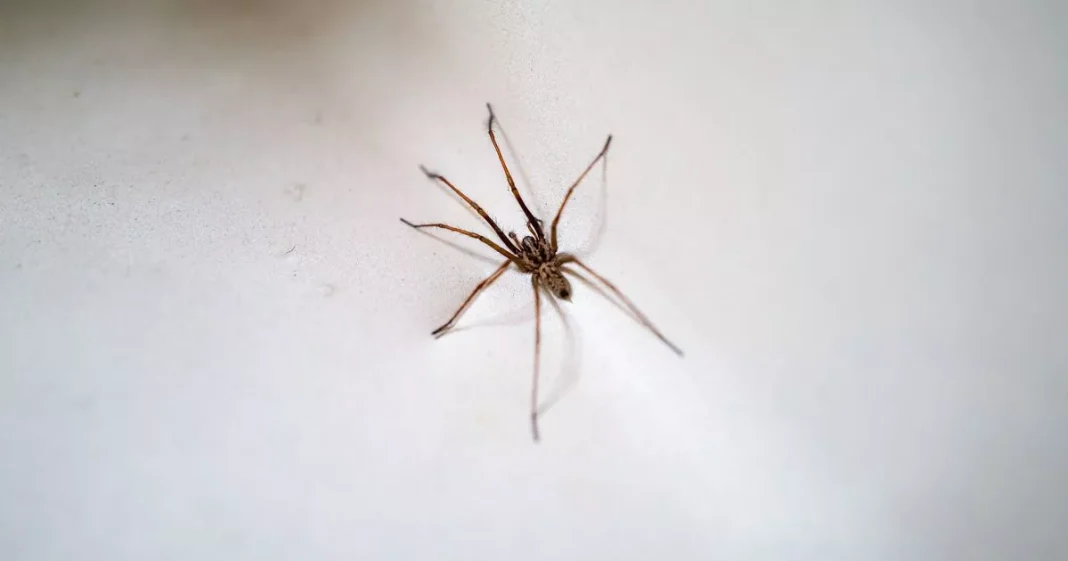As spring approaches and temperatures begin to climb, spiders will awaken from their winter slumber and start hunting for food. While finding spiders in your home isn’t as problematic as discovering other household pests like moths or carpet beetles, many Brits still find them a nuisance.
With their eight legs, spiders are often found in moist, humid environments such as bathrooms, where they hunt for moisture-loving insects. Keeping these eight-legged creatures out of your home may seem like a daunting task, but according to Daniel Steward, managing director at Shield Pest Control, there’s one deterrent that works wonders.
He revealed: “Spiders are highly sensitive to strong smells and acidity, which overwhelms their senses and encourages them to stay away.”
While quirky hacks like using conkers to deter spiders are often suggested, Daniel recommends a few everyday cupboard ingredients instead.
“A great natural spider deterrent is a mixture of white vinegar and water sprayed onto areas where spiders are commonly found”, the pest expert advised. Since spiders smell through their legs, strong scents are particularly effective, reports the Express.
To create this homemade spider repellent, simply combine equal parts vinegar and water in a spray-top bottle and spritz it around common spider hotspots in your home.
Although vinegar is considered an effective remedy against arachnids, it should be used alongside other efforts for long-term results.
Daniel advises: “Our favourite approach is to use a hard, stiff broom or a handheld vacuum cleaner to remove spider egg sacs and webs physically.
“This not only disrupts their habitat but also helps prevent future infestations.” While natural repellents like peppermint, cinnamon or garlic can be useful due to their strong scents for spiders, the effectiveness of conkers as a deterrent is less certain.
Daniel explained: “While some people believe that a compound found in the nut repels them, it’s not something you should rely on, especially if you’re noticing an increase in spider activity.
“Due to their strong sense of smell, peppermint oil is a more reliable natural deterrent. You can also try placing peppermint plants around your home for a longer-lasting effect.”
For those battling bathroom spider invasions, a dehumidifier might help by cutting down on moisture. In terms of bedrooms and living rooms, decluttering could be key as spiders thrive in messy spaces.
Daniel also recommends inspecting for any cracks or gaps around windows, doors, and foundations, noting: “Spiders can easily slip through small openings, so sealing these areas can help prevent them from getting inside.”
He concluded with a tip for drafty rooms: “If you’re noticing an influx in rooms with drafty windows, that could be the entry point.”
At Reach and across our entities we and our partners use information collected through cookies and other identifiers from your device to improve experience on our site, analyse how it is used and to show personalised advertising. You can opt out of the sale or sharing of your data, at any time clicking the “Do Not Sell or Share my Data” button at the bottom of the webpage. Please note that your preferences are browser specific. Use of our website and any of our services represents your acceptance of the use of cookies and consent to the practices described in our Privacy Notice and Cookie Notice.

